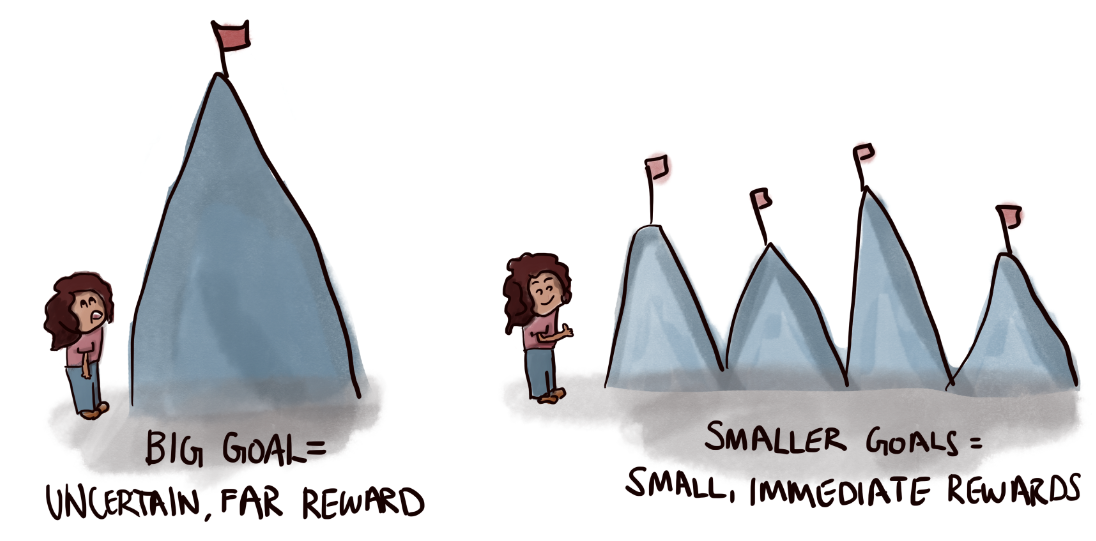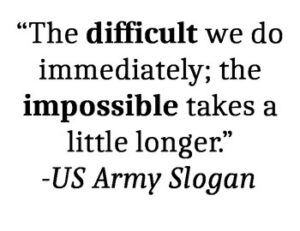I have been asked to reflect upon the statement: “Success is the result of prioritizing long-term desire over short-term gratification.”
I have been setting goals since I was a child. I really didn’t know what I was doing, but when I said I would do it, I did it. I wanted to be the best baseball player on my team. I practiced hard and I practiced in every position to learn which one I could play best. Once I identified that I was an excellent pitcher, I set a goal to be the best pitcher on the team. I accomplished my goals and became an all-star baseball player. Once I was older and in college, I knew what goals were and how to properly set them.
I set long-term goals with several short-term goals to reach my long-term goals. One of my long-term goals is to become a tenure-track college professor. A second long-term goal is to own a 7 figure cybersecurity company. A third long-term goal is to retire in the Dominican Republic. What does this have to do with prioritizing long-term desire over short-term gratification? These three goals span many years. With the first goal being a tenure-track college professor, I knew I would need a terminal degree. I wanted to teach business and entrepreneurship. I knew the degrees required would be a bachelor’s, master’s, and doctorate in business administration. While working on my bachelor’s degree, I worked in information technology. Once I completed my bachelor’s degree I immediately started my master’s degree. The bachelor’s was a short-term goal to get to the master’s.
A bachelor’s degree is an excellent accomplishment. To many, it is the last degree they will earn. I was working in information technology and my salary at the time was the same as a college professor. Short-term gratification would have been celebrating the win of earning my bachelor’s and having the salary I would end up with as a professor. My long-term desire is/was to become a tenure-track college professor. I took my time earning my master’s degree as I wanted to ensure I had a solid foundation as this would be the subject I would be teaching in the future.
During that same time frame, I started an information technology company. I took the skills learned in class along with my past experience in information technology and put them together. I quickly acquired four clients and hired one systems engineer. My company was doing well and I made a trivial mistake. I thought with a master’s degree I mastered the skill of running a business. I went on to start a successful mortgage and trucking company. I was on track to earning 7 figures and was very happy with my life. I strayed from the path of my long-term desires and settled for short-term gratification. Running three companies in three different industries seemed like a breeze. I did not have a supervisor or any buffer between me and my employees. The money was great, but I did not have any free time. No one saw me as I was working all of the time. I had lost focus and was no longer enrolled in my master’s program. Then, life happened.
The mortgage industry turned upside down and I went from closing a deal every 3 days to NOT closing any deals. That was an immediate loss of income. The trucking business was doing very well. I had ten trucks on the road. Then diesel went to $4.95 per gallon. After paying all of the expenses and employees, the profit was zero dollars. I had a hard decision to make, but I did it. I closed the trucking company. Neither the mortgage company nor trucking were goals. They were distractions that delayed me from completing my goals. The short-term gratification blinded me. I decided to re-enroll in my master’s program.
Upon completing my master’s in business administration, I started working as a college professor. This is why I stated is/was when describing the college. I have accomplished steps toward reaching my long-term goal, and this doctorate is the final step. With two degrees in business and 16 years of information technology experience, I was asked to teach information technology. I was extremely good at teaching information technology. I modified my long-term goal from teaching business to teaching information technology. This changed my doctorate from business administration to information technology as well.
The moral of the story is, setting short-term goals to reach your long-term goals is an excellent strategy to briefly have short-term gratification, while still working on your long-term desire. It’s the equivalent of taking a break while climbing a mountain. If the long-term goal is to reach the top, the break is a short-term celebration until you reach the top.


